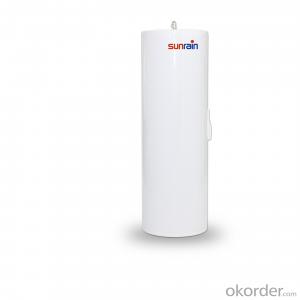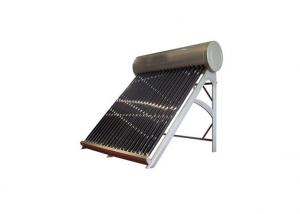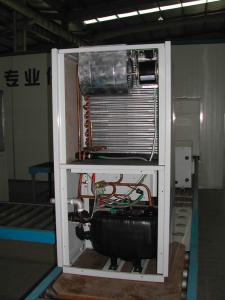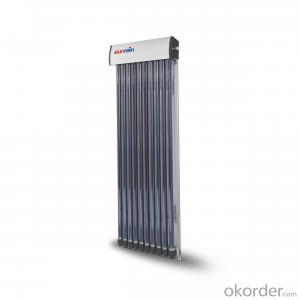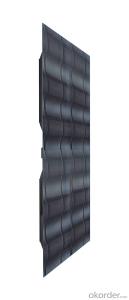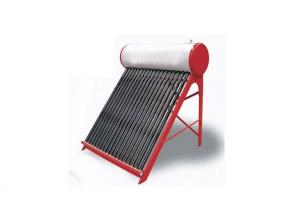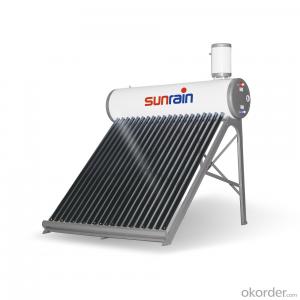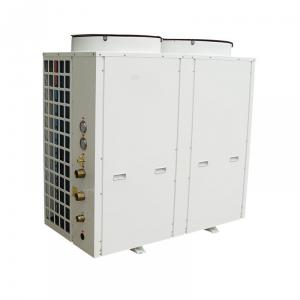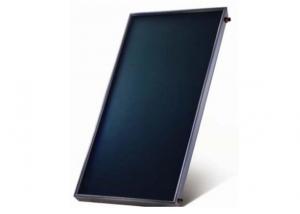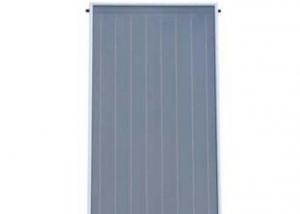Pressurized double tank solar water heater
- Loading Port:
- China Main Port
- Payment Terms:
- TT OR LC
- Min Order Qty:
- -
- Supply Capability:
- -
OKorder Service Pledge
Quality Product, Order Online Tracking, Timely Delivery
OKorder Financial Service
Credit Rating, Credit Services, Credit Purchasing
You Might Also Like
*Inner tank made by SUS316-1.2mm, pressurized system with stable quality
* Suitable for low quality water supply area, for example, Lebanon
* Thermosiphon circulation between vacuum tubes and tank, better heat transfer quality
* Strong frame
* Automatically replenish the tank by assistant tank
| absorbing area (m2) | 2.755 | 3.310 | 4.142 |
| working pressure (bar) | 4 | ||
| ambient temperature | -10-60℃ | ||
| daily efficiency | >=55% | ||
| empty weight (kg) | 83 | 94 | 118 |
| loading qty (20/40/40HQ) | 32/68/72 | 25/56/60 | 22/46/52 |
- Q:What is the expected performance of a solar water heater in areas with high levels of rainfall?
- The expected performance of a solar water heater in areas with high levels of rainfall may be slightly affected due to reduced sunlight exposure. However, modern solar water heaters are designed to efficiently capture and convert solar energy into heat, even on cloudy or rainy days. The system may require occasional adjustments or alternative energy sources during prolonged periods of heavy rainfall, but overall, it can still provide significant energy savings and hot water supply throughout the year.
- Q:Are there any tax credits available for installing a solar water heater?
- Yes, there are tax credits available for installing a solar water heater. These credits vary depending on your location and specific circumstances, but they can help offset the costs of installation and make it more financially feasible to switch to solar energy. It is recommended to consult with a tax professional or visit the official government websites to determine the specific tax credits available in your area.
- Q:What is the average lifespan of a solar water heater?
- The average lifespan of a solar water heater typically ranges from 15 to 20 years, depending on factors such as maintenance, usage, and quality of installation.
- Q:Can a solar water heater be used in areas with high levels of air pollution from power plants?
- Yes, a solar water heater can still be used in areas with high levels of air pollution from power plants. Solar water heaters rely on the sun's energy to heat water, and the pollution levels in the air do not affect the system's ability to capture and utilize solar radiation. However, it is important to regularly clean and maintain the solar panels to ensure optimal performance, as air pollution can potentially accumulate and affect their efficiency over time.
- Q:Can a solar water heater be used in areas with limited access to solar tax credits?
- Yes, a solar water heater can still be used in areas with limited access to solar tax credits. While tax credits can provide financial incentives for installing solar water heaters, the primary benefit of using a solar water heater is its ability to harness energy from the sun to heat water, reducing reliance on traditional energy sources and lowering utility bills. Therefore, even without tax credits, a solar water heater can still be a cost-effective and environmentally friendly solution for heating water in areas with limited access to solar tax credits.
- Q:Are there any limitations on the water temperature that can be achieved with a solar water heater?
- Yes, there are limitations on the water temperature that can be achieved with a solar water heater. The maximum temperature usually depends on factors such as the amount of sunlight available, the size and efficiency of the system, and the design of the solar collector. In general, solar water heaters can typically reach temperatures between 120 to 160 degrees Fahrenheit (49 to 71 degrees Celsius), which is sufficient for most household needs. However, achieving higher temperatures may require additional heating sources or the use of specialized systems.
- Q:How does the type of glazing material impact the performance of a solar water heater?
- The type of glazing material used in a solar water heater greatly impacts its performance. The glazing material acts as a barrier between the solar collector and the external environment, helping to trap the heat inside. The choice of glazing material determines the amount of solar radiation that can pass through, the amount of heat loss that occurs, and the durability of the system. Materials with high transmittance and low thermal conductivity, such as tempered glass or polycarbonate, are often preferred as they maximize heat absorption while minimizing heat loss, resulting in improved overall performance and efficiency of the solar water heater.
- Q:How much water can a solar water heater heat per day?
- The amount of water that a solar water heater can heat per day depends on various factors such as the size and efficiency of the system, the amount of sunlight available, and the temperature of the water. On average, a typical solar water heater can heat anywhere from 40 to 100 gallons of water per day.
- Q:Can a solar water heater be used in areas with limited wood availability?
- Areas with limited wood availability can make use of solar water heaters. Unlike traditional water heaters that require burning wood or other fuels, solar water heaters utilize the sun's energy to heat water. These systems consist of solar panels or collectors that absorb sunlight and transfer the heat to a storage tank, ensuring a supply of hot water without the need for wood or any other fuel. Consequently, a solar water heater can serve as a dependable and sustainable alternative for fulfilling the hot water needs of households or businesses in regions with limited wood availability. It is worth noting that the efficiency of a solar water heater can vary depending on factors such as sunlight availability, climate, and system design. Nonetheless, even in areas with less sunlight, solar water heaters can still provide a significant amount of hot water, reducing dependence on wood or other energy sources.
- Q:Can a solar water heater be used in areas with limited natural gas availability?
- Yes, a solar water heater can be used in areas with limited natural gas availability. Solar water heaters use energy from the sun to heat water, eliminating the need for natural gas or any other fossil fuel. Therefore, they are an excellent alternative in areas where natural gas availability is limited or unreliable. Solar water heaters are not only environmentally friendly but also cost-effective in the long run, as they can significantly reduce energy bills. Additionally, the use of solar water heaters can contribute to a more sustainable and renewable energy future by reducing reliance on non-renewable resources like natural gas.
1. Manufacturer Overview |
|
|---|---|
| Location | |
| Year Established | |
| Annual Output Value | |
| Main Markets | |
| Company Certifications | |
2. Manufacturer Certificates |
|
|---|---|
| a) Certification Name | |
| Range | |
| Reference | |
| Validity Period | |
3. Manufacturer Capability |
|
|---|---|
| a)Trade Capacity | |
| Nearest Port | |
| Export Percentage | |
| No.of Employees in Trade Department | |
| Language Spoken: | |
| b)Factory Information | |
| Factory Size: | |
| No. of Production Lines | |
| Contract Manufacturing | |
| Product Price Range | |
Send your message to us
Pressurized double tank solar water heater
- Loading Port:
- China Main Port
- Payment Terms:
- TT OR LC
- Min Order Qty:
- -
- Supply Capability:
- -
OKorder Service Pledge
Quality Product, Order Online Tracking, Timely Delivery
OKorder Financial Service
Credit Rating, Credit Services, Credit Purchasing
Similar products
New products
Hot products
Hot Searches
Related keywords
